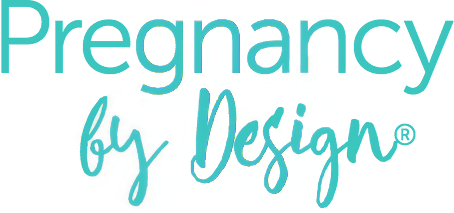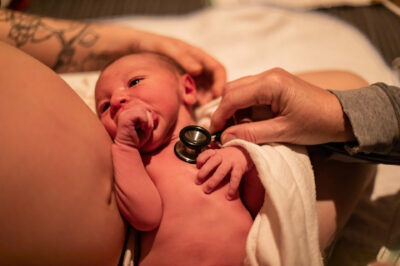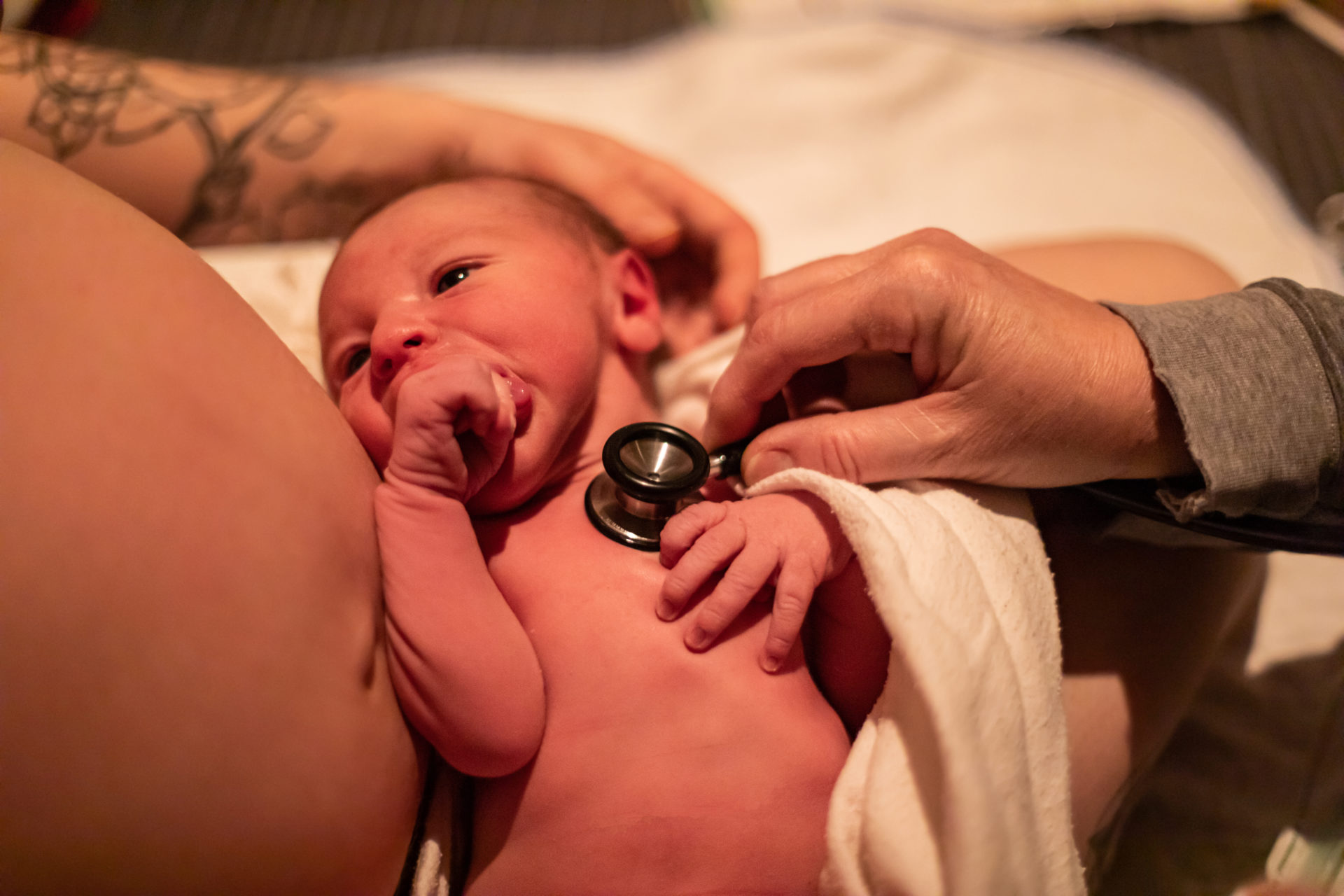Why Choose Natural Birth?
The term natural birth is usually described as giving birth without pain medication. Why would someone choose to forgo pain medication? Most women do not choose natural birth to be brave but rather to avoid other medical interventions that occur when choosing pain medication.
For instance, having an epidural means you must also remain in bed with a bladder catheter, heart rate monitor, contraction monitor, blood pressure cuff, IV and blood oxygen monitor. These are all necessary due to the risks involved with epidural anesthesia.
Others choose to birth naturally because they believe the benefits outweigh the pain of labor.
If you were to interview women who gave birth naturally, most would share that it made them feel powerful, positive, and good; as though they can take on anything! Which is good because parenting is not easy so starting off feeling powerful is extremely helpful.
Benefits of a Natural Birth.
Lower Risk of Cesarean
One of the risks of epidural, induction, or Pitocin, is the increased chances of cesarean birth. Studies show that c-sections happen more often after these interventions.
Cesareans are forever. If you have a cesarean for this baby, you put yourself and your next baby at risk. Any future pregnancies will be higher risk because of the scar. There is significant clinical discussion about the medical importance of preventing and lowering the c-section rate in first-time mothers.
Pushing is Simpler
If you can feel, you can push. Without the sensation, you may have to guess how, when and where to push.
If You Can’t Feel it, You Don’t Know What it’s Telling You.
Birth makes you pay attention. You can’t just ignore it and accidentally have your baby at work.
Part of the reason it’s so intense is because it’s such a biologically big deal. The baby needs you to pay attention to what to do or not do.
You may need to walk or turn over or lean forward to help your baby out.
Your body works best with the biofeedback systems that send messages to different regions about what to do or not do.
If you remove that, the normal physiology of birth is disrupted.
Everything has risks, including natural childbirth. You can’t “choose” an epidural or “choose” to show up for induction or “choose” natural birth without knowing the risks and benefits of the choice.
Most people get an epidural for pain management because they don’t really know any different. It’s just what people do, and it’s oftentimes what the labor and delivery unit is most accustomed to.
Epidurals can help women who are exhausted to birth their babies vaginally. It’s good that we have them. Epidurals, at times, can prevent trauma and cesarean section.
But they can also cause it.
If there’s no one to explain the risks to you, your baby, and your labor, it’s not an informed choice.
Ask questions. Ask around. Do some research now, take a childbirth education class, and remember that it is your choice. No matter what everyone else says or recommends or does, you retain your bodily autonomy.
Do I Need to Prepare for Natural Birth?
Without knowing what you’re getting into, you’re not really choosing natural birth. You’re just going along with an idea or a cultural concept.
You’re also much less likely to actually have a natural birth (unmedicated birth or intervention-free labor) if you don’t really understand what is involved and how to approach it.
It’s important to take a childbirth class, preferably one that focuses on natural birth. Your childbirth educator should teach you about the birth process, stages of labor (early labor, active labor, transition), alternative labor pain relief options such as water therapy (waterbirth tub or shower), using a birthing ball and more. Also take the time to write a birth plan and consider hiring a doula or support person that will express confidence in your ability to birth.
You need, most of all, a healthcare provider (doctor or midwife) who regularly attends low-intervention, vaginal birth without epidural. Someone who believes you can do it and wants to support you.
If you don’t really know what to expect and the diverse ways that people handle it, if you don’t have a support team, your power of choice doesn’t have much power.
Is Natural Birth Safer for the Baby?
Babies are designed to be born naturally, just like women are designed to labor and birth them. This natural process works as well as all the other bodily functions. Usually it’s just fine and requires no intervention.
The science is very clear on the fact that technology and intervention are risky for low-risk births.
The baby is exposed to the drugs and synthetic hormones used in labor. Planning a natural birth will limit baby’s exposure to these chemical interventions.
Other interventions also impact the baby. For example, when a provider limits mom’s movement, it can be difficult for the baby to do his rotations and come down the birth canal.
If the laboring woman can’t feel to push effectively or the provider is impatient during the birthing process, forceps or vacuum may be used to extract the baby.
Epidurals, specifically, carry a host of risks. The manufacturer of bupivacaine, the most common epidural pain medication, states on the drug packaging: “Local anesthetics rapidly cross the placenta and…can cause varying degrees of maternal, fetal, and neonatal toxicity….Adverse reactions in the parturient, fetus, and neonate involve alternations of the central nervous system, peripheral vascular tone, and cardiac function.” Here is more information on Epidurals for Labor.
Is Natural Birth Safer for the Mom?
Epidurals provide serious pain relief, but they also carry serious risks. Women can experience restlessness, anxiety, nausea, chills, fever, worse tearing, temporary incontinence, nerve injury, muscle weakness, dangerous blood pressure drop, and long-term back problems.
There is also a small chance you will experience spinal headache, convulsions, cardiac arrest, or respiratory distress.
Birthing in a comfortable place such as at birthing center or an at home birth, without as many technological medical interventions, allows you to feel safe and your labor to progress naturally. You make oxytocin, the hormone that contracts your uterus, when you feel safe, unobserved, positive, confident and cared for.
Synthetic oxytocin (Pitocin) blocks you from making your own feel-good hormones and lowers the amount available to you and baby postpartum. We are still learning about the long-term effects of synthetic hormone use in labor.
How are the Interventions During Childbirth Risky?
Like life, birth carries risk. So does each intervention. The more interventions used, the more risk involved.
It’s like when people go on a drug for one reason and end up taking two or three other drugs to cover the side-effects of the first drug.
In birth we call this the “cascade of interventions.” It usually starts with induction or epidural. Each has its own effects that require more intervention. Each of those interventions carries its own risks.
Fewer interventions = fewer risks.
Of course, sometimes birth takes us to a place where an intervention is life or labor-saving. In this case, the risks of the intervention significantly outweigh the risks of doing nothing. But this is not usually the case.
Is Natural Birth for Me?
Not if you don’t want it. No one should feel pressured, manipulated or coerced into giving birth naturally. Pregnancy by Design, with the help of Dr. Elizabeth Pearce, has created Beyond the Birth Plan Childbirth Course to help moms make choices in childbirth based on what they believe about birth, health factors and their unique personality. This natural childbirth course focuses on YOU, the laboring person, instead of a one-size-fits-all method for birth. Labor is a unique and individual experience for each woman. Our birth course helps you make more informed choices regarding your pregnancy care by using the Birth Profile Assessment alongside a complete birth course.
You should know some of the facts and your options, and hopefully find some people who can tell you good birth stories, tell you that you’re awesome, strong, and capable—that you can do it.
If not, or if you still don’t like the prospect of a drug-free birth, go for the epidural. The stress and trauma of an unwanted drug-free birth could cause is not healthy.
You can mitigate some of the effects of the epidural by: letting baby choose her birth day, waiting until you really need the epidural to get it, having a doula, and breastfeeding with lots of skin-to-skin contact postpartum.
No matter what happens, you’re awesome for bringing a baby into the world. There’s no greater love.
Disclaimer: Pregnancy by Design’s information is not a substitute for professional medical advice or treatment. Always ask your healthcare provider about any health concerns you may have.
.



 3rd Trimester of Pregnancy
3rd Trimester of Pregnancy






Leave a Reply